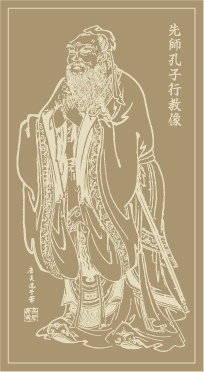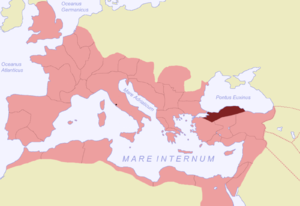Mt. Tsukuba & To the South of Fukushima Prefecture...
Modern History of Senkaku
Tatsushiro Koga, the first Japanese owner of the Senkaku Islands, was born in a farming house cultivating and selling tea, etc. in Fukuoka Prefecture of the Kyusyu region, Japan, in 1856.
In 1868, the last samurai regime of Japan fell through a civil war. It was replaced with the modern Meiji Government which soon consolidated its power as the Imperial Government of Japan. In those days, the Senkaku Islands were virtually part of Okinawa (Ryukyu Kingdom) which was subject to a samurai clan in Kyusyu, the most westward region of Japan proper, who was called Satsuma. As Satsuma was under the Tokugawa shogun (the head of the samurai regime) in Tokyo, Okinawa became part of the Empire of Japan as the most southern prefecture. But there was some official ambiguity about attribution of the Senkaku Islands, as Ryukyu Kingdom of Okinawa had had a unique relationship with China (the Qing Dynasty) as a tributary.
When Koga was 24 yeras old in 1879, he moved to Naha City, Okinawa, to start his own business. Then in 1884, he ventured into development of the Senkaku Islands, 410 km far from the main island of Okinawa. Koga filed an application for use of Senkaku to the Okinawa Prefecture office in 1885. Okinawa officials consulted Tokyo, and the central government of the Empire started to investigate legal status of the Senkaku Islands situated between the Chinese continent and the Okinawa islands.
In 1895 during the First Sino-Japanese War, the Imperial Government officially decided, through a Cabinet meeting decision, to incorporate the Senkaku Islands into the Japanese territory. In 1896, Tatsushiro Koga was officially authorized to lend the Senkaku Islands in a 30-year contract by the Imperial Government of Japan. In one time, Koga employed 200 workers for fish processing work in the Senkaku Islands. This is the only known case in history (of Japan and China) of any business activities that have ever been onducted in the Senkaku Islands. In 1909, Koga was praised publicly by the Imperial Government for his business activities in Senkaku. And in 1918, Tatsushiro Koga died.
In 1932, the Imperial Government of Japan sold four islands of the Senkaku Islands to Zenji Koga, the eldest son of Tatsushiro Koga. But, Zenji Koga and his wife Hanako had no children, though the Kogas loved a young man named Kunioki Kurihara who later came to possess the Senkaku Islands.
In 1968, a seafloor survey suggested a strong possibility of existence of a huge amount of deposit of crude oil and natural gas around the Senkaku Islands and surrounding areas of the East China Sea. This possibility was confirmed by a UN survey team in 1969 and 1970. Accordingly, in 1971, Taiwan and China started to claim their sovereignty over the Senkaku Islands.
In 1972, the Kogas handed over two islands of the Senkaku Islands to the Kunihara family. In 1978, Zenji Koga died and all the properties he owned was transferred to his wife Hanako. But on this occasion, Hanako Koga handed over the main island of Senkaku, called Uotsuri-jima Island, to the Kurihara family. When Hanako Koga died in 1988, all the other properties were also transferred to the Kurihara family.
According to a rumor, in the above transaction, the Kurihara family paid about 46 million yen (presently $580,000) to the Koga family, though the Kurihara family today claims that they paid more.
In 2002, the Japanese Government started to lease the Senkaku Islands from the Kurihara family at a rent of 20 million yen ($250,000) per year. A younger brother of Kunioki Kurihara says that he visited the Senkaku Islands scores of times before; but the Japanese Government has prevented ordinary Japanese citizens from landing on the Senkaku Islands so as not to intensify a diplomatic dispute over Senkaku with China.
In September 2010, some Chinese fishing boats were engaged in illegal fishing in the Japanese sea territory around the Senkaku Island (usually many Chinese fishing boats are active in the area). One of them was captured by the Japan Coast Guard after violent resistance against Japanese patrol boats. The event was taken into video by Japanese maritime officials, and the video clips were later released voluntarily by one Japanese officer (who was eventually forced to resign by the pro-Chinese Kan Cabinet at the time). The video exposed lies the Chinese Government told to the world about this collision incident between the Japanese patrol boats and the Chinese fishing boat (they claimed that the Chinese boat was unreasonably attacked by the Japanese authority, which was not true). But the captain of the illegal Chinese fishing boat who was arrested and indicted was released before a trial in a court by a Japanese public prosecutor in Okinawa (who apparently followed an instruction from then pro-Chinese Prime Minister Naoto Kan and his aids in Tokyo).
In the spring of 2012, Tokyo Prefecture Governor Shintaro Ishiahara launched a project to buy out the Senkaku Islands from the Kurihara family. He first planned to use public money of Tokyo Prefecture office, but the Tokyo Governor also solicited the public for contributions. As of the beginning of June 2012, more than one billion yen ($12.5 million) was contributed by many patriotic Japanese citizens.
http://ameblo.jp/hinoeuma-v/entry-11245625131.html?frm_src=thumb_module
A processing factory of dried bonito in Senkaku run by Tatsushiro Koga.
(to be continued...)
*** *** *** ***
Mar 6:12 And they went out, and preached that men should repent.
Mar 6:13 And they cast out many devils, and anointed with oil many that were sick, and healed them.


















